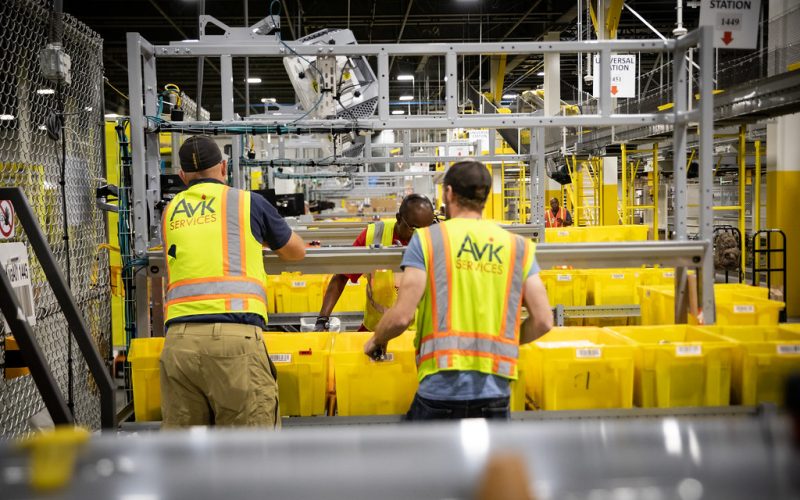The food truck business has gained popularity in recent years as a unique and innovative way to serve delicious food to customers on the go. However, starting a food truck business requires careful planning and significant upfront capital, which can be a challenge for aspiring entrepreneurs with limited financial resources. But fear not! With resourcefulness, creativity, and strategic planning, it is possible to start a food truck business with little to no money. In this article, we will learn how to start a food truck business with no money.
Research and Planning
The first step in starting a food truck business with no money is conducting thorough research and developing a comprehensive business plan. Market research is essential to identify your target market, assess the competition, and determine the potential demand for your food truck concept. This research will inform your marketing strategies and sales projections, which will be crucial in attracting investors or sponsors.

Additionally, a well-prepared business plan will serve as a roadmap for your food truck business. It should include a detailed description of your business, including your food truck concept, menu, and pricing strategy. It should also outline your marketing strategies, financial projections, and operational plans.
When starting a food truck business with no money, it is important to keep costs as low as possible. One strategy is to develop a simple and manageable menu that requires minimal ingredients and preparation. This will help reduce food costs and operational complexity.
Funding Strategies
Securing funding is one of the biggest challenges when starting a food truck business with no money. However, there are various funding options that aspiring food truck owners can explore.
- Bootstrapping: Bootstrapping refers to starting a business with little to no external funding. This may require using personal savings, credit cards, or borrowing from family and friends. It requires careful financial planning and budgeting to manage expenses and revenues effectively.
- Crowdsourcing: Crowdsourcing involves raising funds from a large group of people, typically through online platforms. This can be done through crowdfunding campaigns, where people contribute money in exchange for rewards or equity in the business. Creating a compelling pitch that showcases the uniqueness of your food truck concept and its potential profitability is essential in attracting potential backers.
- Seeking Investors: Although it may be challenging to attract investors with no money upfront, it is not impossible. Investors may be interested in your food truck business if you have a strong business plan, a unique value proposition, and a clear strategy for profitability. Networking and attending industry events can provide opportunities to connect with potential investors who are interested in supporting innovative food truck concepts.
- Sponsorships: Partnering with local businesses or organizations can be a creative way to secure funding for your food truck business. For example, you can seek sponsorship from local restaurants, food suppliers, or beverage companies in exchange for advertising or promotional opportunities on your food truck. Building meaningful partnerships and showcasing the mutual benefits of collaboration can be compelling to potential sponsors.
Resourceful Networking
Networking is a critical aspect of starting and growing any business, and the food truck industry is no exception. Building a network of contacts can lead to partnerships, collaborations, and cost-saving opportunities.
- Attend Industry Events: Attend industry events such as food truck festivals, trade shows, and networking events to connect with other food truck owners, potential sponsors, and industry experts. Be proactive in networking and building meaningful relationships that can provide insights, advice, and potential opportunities.
- Join Associations or Organizations: Join food truck associations or organizations in your local area or region to connect with like-minded individuals, share ideas, and gain access to valuable resources. These associations may also provide opportunities for marketing, promotions, and advocacy efforts on behalf of the food truck industry.
- Connect with Other Food Truck Owners: Building relationships with other food truck owners in your area can be mutually beneficial. They can provide valuable insights and advice on starting and running a food truck business, share information about local regulations and permits, and even collaborate on events or promotions. Attend meetups, join online forums or social media groups, and reach out to other food truck owners to build a supportive network within the industry.
- Seek Barter or Trade Opportunities: Another resourceful networking strategy is to seek barter or trade opportunities with other businesses. For example, you can offer your food truck services in exchange for discounted or free supplies, equipment, or services. This can help you save on expenses and leverage your skills and services to gain valuable resources without incurring additional costs.
Creative Marketing and Branding
Effective marketing and branding are crucial for the success of any business, including a food truck business. However, when starting with no money, traditional marketing strategies such as paid advertisements may not be feasible. Here are some creative marketing and branding strategies that can be cost-effective:
- Social Media: Social media platforms such as Facebook, Instagram, and Twitter are powerful marketing tools that are often free or low-cost. Create engaging and consistent content, share mouthwatering food photos, post updates about your location and menu, and interact with your audience. Encourage your customers to share their experiences and reviews on social media, and leverage user-generated content to create buzz and attract new customers.
- Word of Mouth: Word of mouth marketing is one of the most effective forms of marketing, and it doesn’t cost anything. Provide excellent customer service, offer delicious food, and create memorable experiences for your customers. Encourage them to spread the word about your food truck to their friends, family, and colleagues. You can also offer incentives such as discounts or freebies for referrals to incentivize word of mouth marketing.
- Collaborations and Cross-Promotions: Collaborate with other local businesses or events to cross-promote each other. For example, you can partner with a local brewery or winery and offer food pairings at their tasting events. You can also collaborate with local farmers markets, festivals, or community events to increase your visibility and attract new customers. Cross-promotions allow you to leverage each other’s audience and expand your reach without spending a lot of money on marketing.
- Unique Branding: Your food truck’s branding is crucial in setting you apart from the competition. Develop a unique and memorable brand identity that reflects your food truck concept, menu, and values. This can be reflected in your truck’s name, logo, menu design, and overall aesthetic. Create a compelling story or message behind your brand that resonates with your target audience and makes your food truck stand out.
Operational Efficiency and Cost Management
When starting a food truck business with no money, it is crucial to operate efficiently and manage costs effectively. Here are some tips for operational efficiency and cost management:
- Equipment and Supplies: Look for cost-effective options when it comes to purchasing or leasing equipment and supplies. Consider buying used or refurbished equipment, or even borrowing from family or friends. Negotiate with suppliers for discounts or extended payment terms. Keep a close eye on your inventory to avoid wastage and overstocking.
- Location: Your food truck’s location can significantly impact your success. Choose your location strategically to maximize foot traffic and customer demand. Research local regulations and permits for parking or setting up your food truck in different locations. Consider partnering with local businesses or events to gain access to their premises without incurring high rental costs.
- Streamlined Menu: As mentioned earlier, developing a streamlined and simple menu can help reduce food costs and operational complexity. Choose ingredients that are affordable and versatile, and focus on signature dishes that are unique and memorable. This will not only help you manage costs but also improve operational efficiency as it will be easier to prepare and serve a limited number of menu items quickly and consistently.
- Staffing: Staffing costs can quickly add up, especially when starting with no money. Consider hiring part-time or temporary staff, or even relying on volunteers or friends and family to help you initially. Train your staff to be efficient and productive, and ensure that they are well-equipped to handle the tasks assigned to them.
- Inventory Management: Effective inventory management is crucial in reducing food waste and minimizing costs. Keep track of your inventory regularly, and develop a system to rotate perishable items to prevent spoilage. Avoid overstocking and only purchase what you need to minimize waste and costs. Consider partnering with local suppliers or farmers to get fresh produce at a lower cost.
- Time Management: Time is money, and managing your time efficiently is essential when starting a food truck business with no money. Plan your operations carefully, and streamline your processes to ensure maximum productivity. Optimize your schedule to minimize downtime and maximize revenue-generating activities such as food preparation and serving customers.
- Cost-cutting Measures: Look for creative ways to cut costs without sacrificing quality. For example, consider using eco-friendly or biodegradable food containers instead of costly disposable ones. Look for affordable alternatives for ingredients or supplies, and negotiate with vendors for discounts or favorable payment terms. Keep a close eye on your expenses and identify areas where you can make cost-cutting measures without compromising on the quality of your food or service.
Adapting to Challenges
Starting a food truck business with no money can come with its fair share of challenges. However, with the right mindset and strategies in place, you can overcome these challenges and thrive. Here are some tips on how to adapt to challenges:
- Flexibility: Be prepared to adapt and pivot your strategies as needed. The food truck industry can be dynamic, and factors such as weather conditions, customer preferences, and local regulations may require you to change your plans. Stay flexible and open to new ideas, and be willing to make adjustments to your business model to stay competitive.
- Resilience: Starting a business with no money can be tough, and you may face setbacks along the way. It’s essential to develop resilience and a positive mindset to overcome challenges and keep moving forward. Learn from your mistakes, stay focused on your goals, and keep pushing through difficult times.
- Innovation: Look for innovative ways to solve problems and overcome challenges. For example, if you are facing limited funding for marketing, think of creative strategies such as guerilla marketing or grassroots campaigns that can generate buzz without costing much. Embrace innovation and think outside the box to find solutions to challenges.
- Customer Feedback: Your customers are your best source of feedback and insights. Listen to their feedback, and use it to improve your food, service, and overall customer experience. Take customer complaints or negative reviews as opportunities to learn and grow, and make necessary adjustments to your operations based on customer feedback.
- Continuous Learning: Keep learning and improving your skills and knowledge about the food truck industry. Stay updated with the latest trends, regulations, and best practices. Attend workshops, seminars, or industry events, and network with other food truck owners to gain valuable insights and stay ahead of the competition.
Bonus Video: How To Start a Food Truck Business
Conclusion
Starting a food truck business with no money can be challenging, but it is not impossible. With careful planning, creative strategies, and a willingness to adapt to challenges, you can successfully launch and operate a food truck business on a shoestring budget. Remember to focus on building relationships, leveraging free or low-cost marketing strategies, optimizing operational efficiency, and adapting to challenges as you navigate the journey of starting your food truck business with no money. With dedication, hard work, and perseverance, you can achieve success in the competitive food truck industry.
Starting a food truck business with no money requires resourcefulness, creativity, and careful planning. By utilizing free or low-cost marketing strategies, building relationships with your community, optimizing operational efficiency, and adapting to challenges, you can overcome the initial financial constraints and build a successful food truck business. Remember to stay focused on your goals, continuously learn and improve, and provide exceptional food and service to your customers.
Starting a food truck business with no money may seem daunting, but with determination and strategic planning, it is possible to turn your dream into a reality. By leveraging your skills, creativity, and passion for food, you can build a thriving food truck business that attracts customers, generates revenue, and becomes a beloved part of your local community. With careful consideration of costs, efficient operations, and effective marketing, you can overcome financial challenges and create a profitable and sustainable food truck business. Good luck on your journey to becoming a successful food truck owner!












